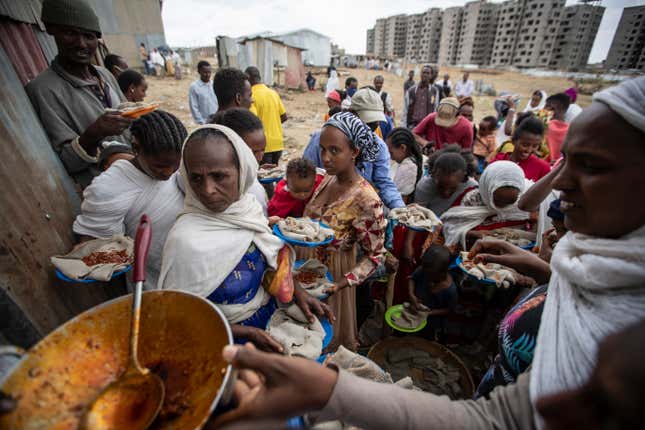
A quarter of Africans are at risk of experiencing hunger due to climate change, conflict and rising food and fuel prices, reported Reuters. The International Committee of the Red Cross estimated about 346 million people in Africa are at risk of hunger.
ICRC’s global operations director, Dominik Stillhart, said food insecurity has hit many countries where the organization is working and people are affected by armed conflict causing them to “tip into famine-like conditions.”
More on the conflicts from Reuters:
Two years of conflict in northern Ethiopia’s Tigray region has left millions facing famine-like conditions and created a hunger crisis in neighbouring regions.
Insurgencies in Burkina Faso, Mali, Niger, and Nigeria have also deepened food insecurity in West Africa, which now faces its worst food crisis on record.
Stillhart told Reuters the same countries dealing with conflict such as South Sudan and Somalia are also those affected by climate change . He added that about 90 percent of Somalia is experiencing drought at the moment.
Reuters reported the drought killed 650,000 livestock, causing a blow to families who relied on animals to make money. Additionally, the United Nations World Food Programme reported that 1.4 million children under five could become malnourished if this year’s rain doesn’t materialize for the country.
On inflation, African countries are experiencing a spike in fuel prices because of the Russian-Ukrainian war.
More from Reuters:
Prices for wheat, of which Russia and Ukraine are both leading producers, have retreated from all-time highs hit last month but remain 70% higher than April 2021. Corn and oil prices have also surged.
“Our call today really is that the attention on the plight of the people of the people in Ukraine - which is of course terrible - should not prevent the world from looking at other crises,” said Stillhart via Reuters.
He has a point. Ethiopia has been in need of food and supplies for months and the conflict has made it difficult for them to receive it from organizations who have tried to help. The conflict being televised most often isn’t the only crisis happening.

